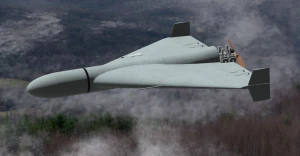
Alleged perpetrators of Hroza attack will face trial in absentia
Investigators have identified individuals who likely directed the Russian Iskander missile toward a café in the Hroza village, Kupyansk district. These individuals will be subject to legal proceedings in their absence, in line with Ukrainian law
Dmytro Chubenko, the spokesperson for the Kharkiv Regional Prosecutor's Office, made this announcement on Espreso TV.
Chubenko also revealed that collaborative efforts between the prosecutor's office and the SBU (Security Service of Ukraine) are currently underway.
"Based on operational information, two law enforcement officers are currently located within the territory of the Russian Federation. Therefore, apprehending them is currently not feasible. However, prosecutors and investigators have prepared a report of suspicion. A special pre-trial investigation will continue, with the goal of identifying all individuals involved in this crime. In due course, these suspects will be tried in absentia. They will be declared as wanted individuals, potentially confined within Russia's borders. The course of justice can ultimately bring them to account, as no regime is everlasting," emphasized Chubenko.
To provide a legal assessment, authorities are in the process of examining all correspondence and conducting interviews with individuals who had interactions with these collaborators.
"Two local collaborators have been identified, and it has been determined how and with whom they communicated. While there might not have been a clear intention on their part to disseminate information that would harm Ukraine, transmitting information with restricted access about military locations or the placement of military posts can potentially be subject to legal consequences under the Criminal Code of Ukraine," Chubenko explained.
- On October 5, a tragic event unfolded in Hroza, Kharkiv region, when Russia shelled the village. This act resulted in the loss of at least 50 lives and left six others injured. The incident took place at a café where a memorial dinner was in progress, and it was confirmed that the missile used was an Iskander-M.
- Following this devastating event, the UN High Commissioner for Human Rights dispatched a field team to investigate the Russian attack on Hroza in the Kharkiv region.
- By October 7, local law enforcement had identified 48 of the deceased. DNA samples were collected from at least 16 relatives, while an additional 79 samples were processed from unidentified remains and body fragments using the ANDE DNA complex.
- On October 9, it was reported that 49 bodies of Hroza residents had been identified.
- Tragically, on October 10, the police announced that the death toll had increased to 53 people. The police had initially received 22 reports of missing individuals in Hroza, but only five remained missing. Investigators and forensic experts worked tirelessly since October 5, conducting 288 DNA studies.
- Only on October 11 did it become known that 55 people had lost their lives. On the last day, two more individuals were identified through DNA analysis.
- On October 11, the SBU identified the suspected individuals responsible for the Russian attack on Hroza. These individuals were local former intelligence agents and brothers who had fled to the occupiers.
- News













































